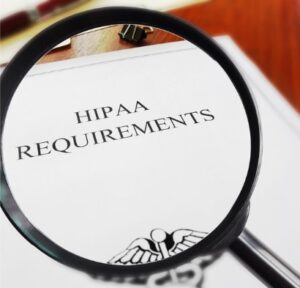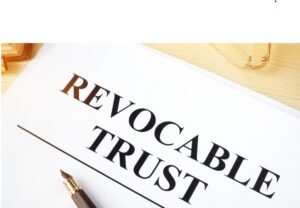Preparing and Planning in Retirement
Latter life planning can be unpleasant to consider but avoiding the preparation for reality will not avoid the consequences of reality when they strike. Planning eliminates potential problems and conflicts regarding your needs at the end of your life when you are unable to manage your affairs and how the assets you leave behind will be distributed. It can help you control your affairs when you are not able to make decisions independently and will relieve those who are charged to care for you and your needs from complexities and difficulties that could easily have been avoided. Simply put, planning is the wise and loving thing to do to make sure your intentions are carried out when you are not able to see to it yourself.
The Will
The Will is the most popular document related to latter life planning, specifying the disposition of assets upon the passing of the owner. Upon the passing of an individual, the Will is presented by the executor (administrator) of the decedent’s estate to the probate court to ascertain that testament is valid and was, in fact, the intention of the individual. However, the Will is limited to directing the disposition of only those assets that have not already been determined. Assets owned jointly by individuals (with the right of survivorship) pass to the surviving owner(s), and financial instruments and accounts specifying the beneficiary(ies) of the accounts will be distributed directly to these individuals, regardless of what is stated in the Will. Although a Will is important, it is not the most important legal document you need to have in place and may even have very limited value if the ownership of property and the beneficiaries of financial accounts are structured properly through ownership arrangements and beneficiary designations.
Durable Power of Attorney
 This document authorizes individuals to represent you and handle your financial and legal affairs when you are incapacitated. This is important in the event when you are unable to do such things as pay bills, sign documents and even make relatively simple decisions. Keep in mind that you cannot wait indefinitely to execute this document since you must be deemed of sound mind to do so and may gradually slip to a state where you are mentally incompetent and are no longer able to put the document in effect. Certainly, you need to entrust someone who is looking out for your best interest when you appoint an individual to fill that role.
This document authorizes individuals to represent you and handle your financial and legal affairs when you are incapacitated. This is important in the event when you are unable to do such things as pay bills, sign documents and even make relatively simple decisions. Keep in mind that you cannot wait indefinitely to execute this document since you must be deemed of sound mind to do so and may gradually slip to a state where you are mentally incompetent and are no longer able to put the document in effect. Certainly, you need to entrust someone who is looking out for your best interest when you appoint an individual to fill that role.
Medical Power of Attorney (HIPAA)
Unlike a Durable Power of Attorney, the scope of this document is limited to appointing someone to act in your behalf solely for healthcare-related decisions, whereas a Durable Power of Attorney may not authorize this function. This is important when you want specific individuals to be apprised of your health situation and be your advocate—especially if you may not be able to understand what the best course of action for your medical treatment is and you do not want to rely on medical professionals who know their craft but do not know you and which services you want or do not want administered.
Advanced Medical Directive
 What is commonly referred to as a Living Will provides medical practitioners with clear direction as to what care you want or do not want administered, which is of particular importance at the end of your life. Plainly speaking it is designed to withhold treatment and services that would keep you medically alive but not at a quality of life you would want.
What is commonly referred to as a Living Will provides medical practitioners with clear direction as to what care you want or do not want administered, which is of particular importance at the end of your life. Plainly speaking it is designed to withhold treatment and services that would keep you medically alive but not at a quality of life you would want.
A Trust
A Trust can be a complicated legal document and conceptually difficult to understand. It is a legal entity that can own assets and conduct legal transactions—similar to a corporation that is also not “tangible.” The primary reason for establishing a trust is for the assets not to be in your name.

The two basic distinctions of trusts—Revocable and
Irrevocable—differ in who is assigned to fill the three Trust roles—the grantor (the individual who grants, or funds the trust), the trustee (who oversees and manages the assets of the trust) and the beneficiary (who receives proceeds from the trust). The grantor puts money in the trust and the trustee handles and distributes the money to the beneficiary per the trust stipulations. For both Revocable and Irrevocable Trusts, you would be the grantor if you are funding the trust you establish. In a Revocable Trust the grantor is usually also the trustee and beneficiary (and both controls and gets money from the trust). Conversely, in an Irrevocable Trust the grantor is neither the trustee nor the beneficiary (and is not able to control or receive proceeds directly from the trust).
 The chief benefit of a Revocable Trust is that it avoids the probate process. The Trust does not go through probate as is necessary to determine who will own the assets of an individual who has deceased. . The Trust owns the assets while the grantor is alive and after the grantor has passed, and stipulations in the Trust specify who will receive the assets owned by the Trust and when. In fact, the Will has no impact on how the assets in the Trust are distributed because the Will is limited to specifying the disposition of assets owned by the individual and the individual does not own the Trust’s assets.
The chief benefit of a Revocable Trust is that it avoids the probate process. The Trust does not go through probate as is necessary to determine who will own the assets of an individual who has deceased. . The Trust owns the assets while the grantor is alive and after the grantor has passed, and stipulations in the Trust specify who will receive the assets owned by the Trust and when. In fact, the Will has no impact on how the assets in the Trust are distributed because the Will is limited to specifying the disposition of assets owned by the individual and the individual does not own the Trust’s assets.
An Irrevocable Trust also avoids probate but if properly executed it also protects the assets from the creditors of the grantor because the grantor does not own or control the assets and neither benefits nor has access to the assets. It is commonly used to protect assets from being required to pay for the grantor’s long-term care after they have been in the trust long enough, and the grantor can qualify for Medicaid benefits to pay for the grantor’s long-term care—usually in a nursing home.
Individuals who can benefit most from Trusts are those who have a blended family structure; are concerned about disputes among heirs over the ownership of assets and want to avoid probate; own multiple pieces of property and/or dwellings—especially in multiple States; and want to shield assets from long-term care expenses–preserving them for the healthier spouse and to supplement the care they receive through Medicaid, and leave whatever is left for heirs.
Funeral Plans (Prepaid Funeral)
Making funeral arrangements can be burdensome on those who are grieving the loss of a loved. Prepaid funeral arrangements eliminate the emotional and financial strain on those left behind, while simply “premade” funeral arrangements communicate the intentions of the deceased without prepaying the costs of the funeral. “Premade” funeral arrangements could wind up being more financially efficient by not tying the payment for funeral services to a specific funeral home or cemetery, which could be complicated if an individual moves to a distant location after the prepaid funeral arrangements have been finalized.
Beneficiaries
 Directing the financial institutions holding your financial accounts and instruments to who will take possession of your assets upon your passing is the most effective and convenient way to transfer wealth. It avoids the probate process and gives your beneficiaries direct access to the assets with minimal delay. The potential problem with this arrangement is you must specify your beneficiaries with each financial institution and inform them of any changes in your intentions for them to be recognized; details in your Will are relevant only if you do not have any beneficiary designations for a particular account. Outdated and Incorrect beneficiary instructions that were once provided to financial institutions will result in your assets being inherited by unintended individuals.
Directing the financial institutions holding your financial accounts and instruments to who will take possession of your assets upon your passing is the most effective and convenient way to transfer wealth. It avoids the probate process and gives your beneficiaries direct access to the assets with minimal delay. The potential problem with this arrangement is you must specify your beneficiaries with each financial institution and inform them of any changes in your intentions for them to be recognized; details in your Will are relevant only if you do not have any beneficiary designations for a particular account. Outdated and Incorrect beneficiary instructions that were once provided to financial institutions will result in your assets being inherited by unintended individuals.
It is critically important to update beneficiaries in your accounts if you have had any changes in relationships with a spouse (divorced, married or widowed) or children (passing, adoption, estrangement, birth of grandchildren) or others you may have specified as beneficiaries at one time.
Information for Executor/Trustee
 Either due to an effort to maintain your privacy or simply not making it important, the individual who will administer your financial affairs upon your passing might not be informed of your intentions and where to locate information on all the assets you own. This can cause needless difficulty identifying the institutions where your assets are held and locating all the assets you own. It could also create misunderstandings and conflict between heirs as to who gets what when you pass.
Either due to an effort to maintain your privacy or simply not making it important, the individual who will administer your financial affairs upon your passing might not be informed of your intentions and where to locate information on all the assets you own. This can cause needless difficulty identifying the institutions where your assets are held and locating all the assets you own. It could also create misunderstandings and conflict between heirs as to who gets what when you pass.
Download the PDF
Latter Life Checklist






